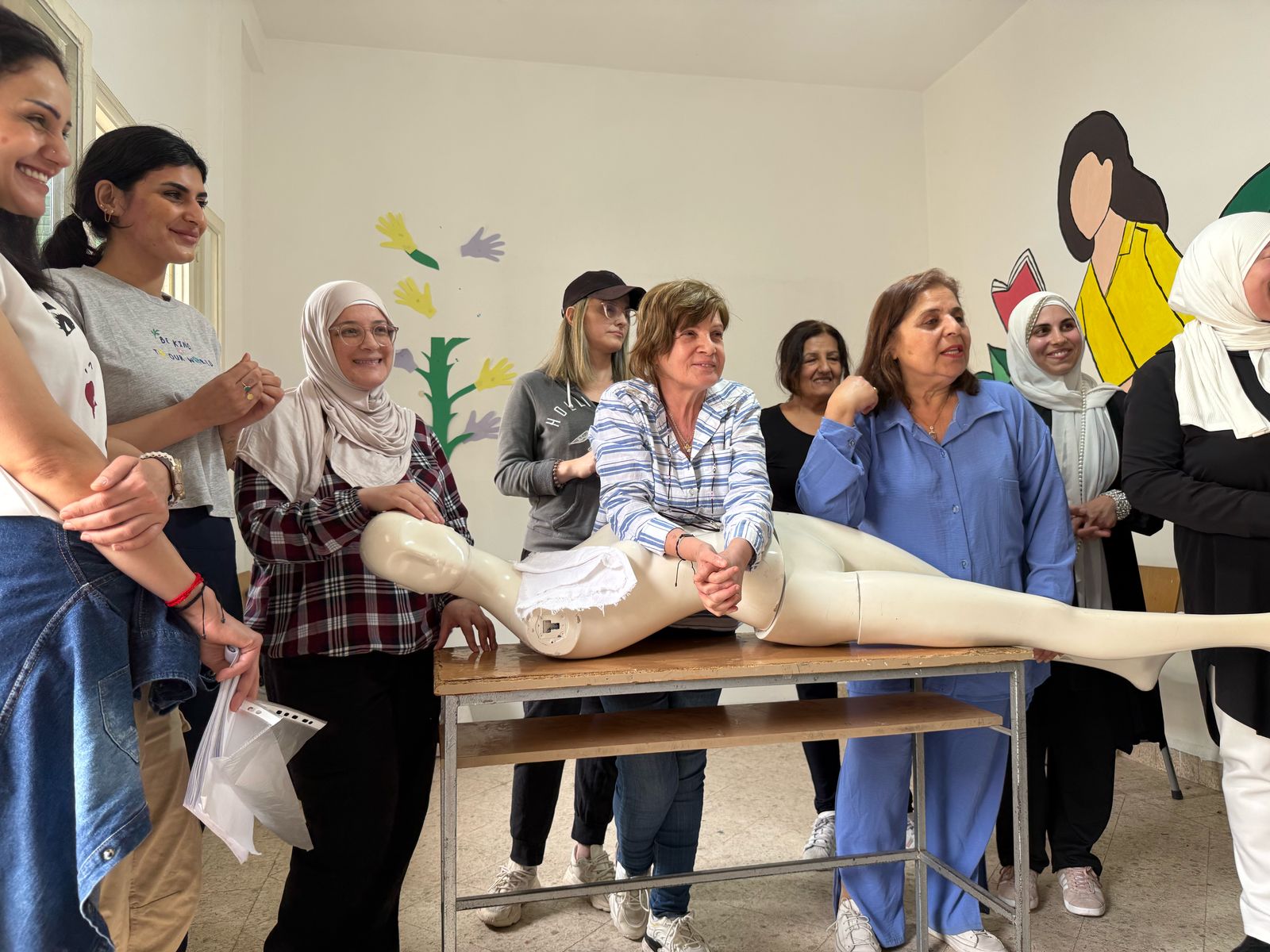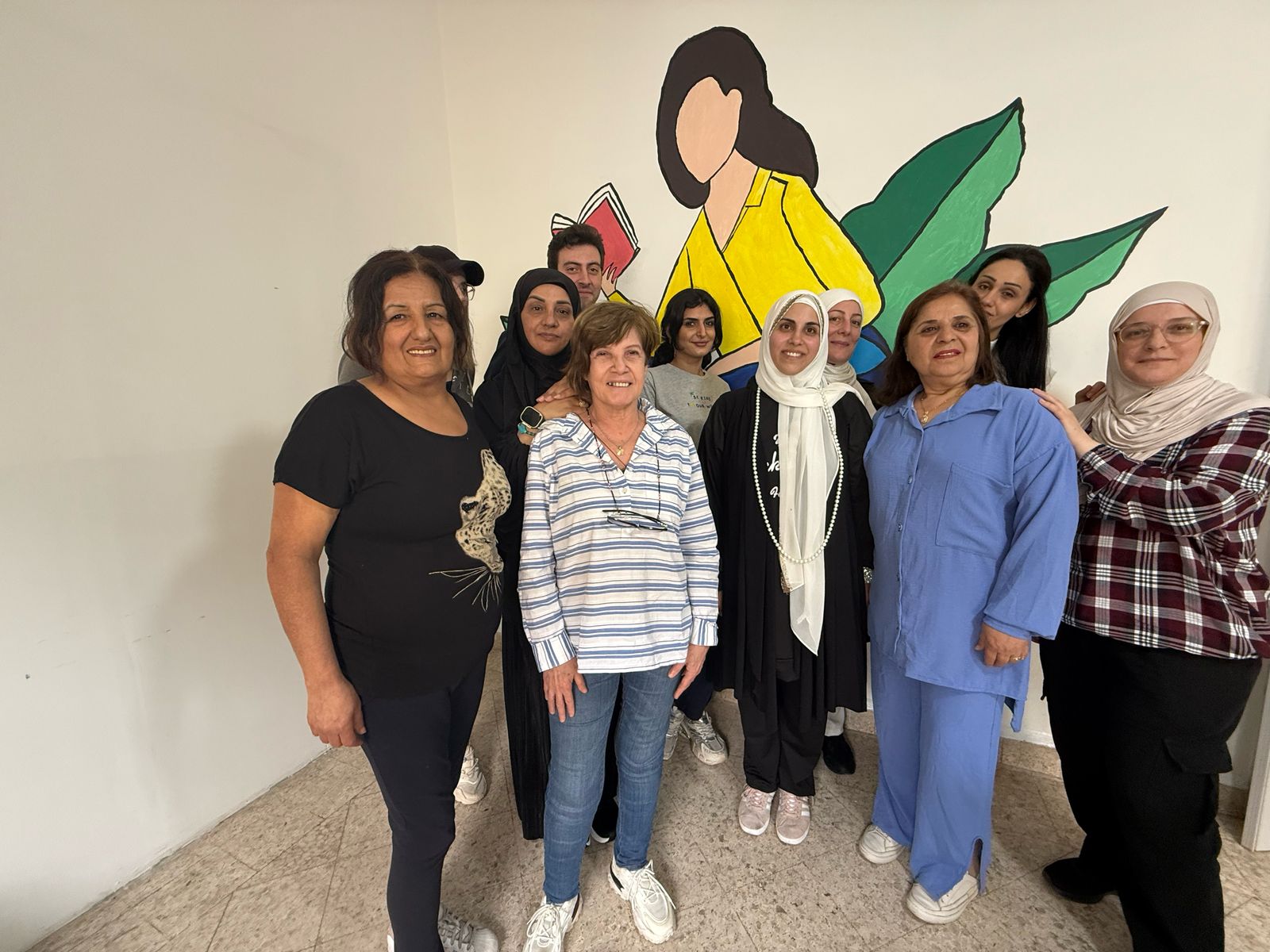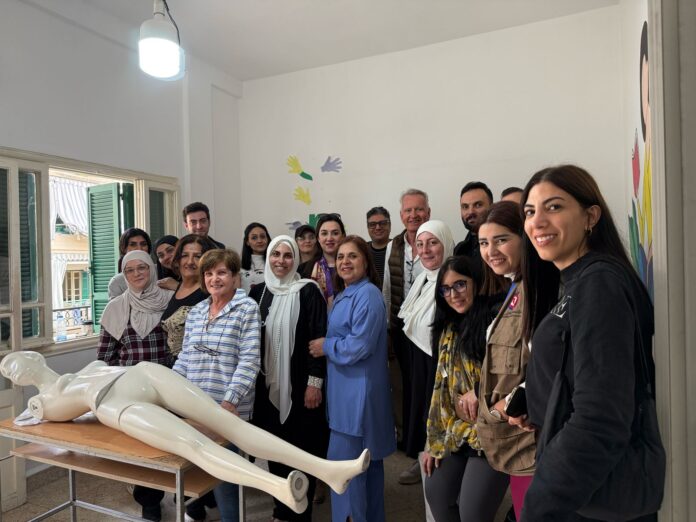At the Amel Association International Center in Ain El-Remmaneh, a unique story of resilience and empowerment unfolds. Every day, a group of courageous women gathers to rehearse “A Red Handkerchief,” a play written and directed by Mohammad Hamdan Eidy. It is more than a theatrical performance — it is a living testimony against discrimination, stigma, and the deep scars patriarchy leaves on generations of women.
Duration and Background
This transformative work is part of a UNHCR project and a theater class hosted at the Amel Center. What began with simple psychological and physical exercises evolved unexpectedly into a major theatrical production. Amid laughter and reflection, the lecturer, Mohammad Hamdan Eidy, developed a compelling script rooted in the real experiences of the women he observed.
Inspired by psychiatric study and personal observations, Eidy crafted each character’s story to reflect the participants’ own struggles and dreams. Remarkably, almost 90% of the women’s real-life experiences echoed through the script, creating an emotional and authentic bond between the performers and their roles.
Rehearsals, spanning nearly two years, were not without challenges. Some women walked half an hour daily with an autistic son to attend practices. Others traveled with young children from Baalbek to Beirut, balancing heavy domestic responsibilities with artistic commitment. Despite these obstacles, their deep belief in the play’s cause and the professor’s vision fueled an unbreakable perseverance. For many, the theater class became a rare space of psychological comfort, personal growth, and newfound courage — even therapists noticed transformative effects on their personalities and emotional well-being.
 About the Play
About the Play
“A Red Handkerchief” opens with the men of a village asking the women to wash the body of a murdered woman. In the process, a red scarf is discovered beside the corpse — an object symbolizing the societal shame that women have been conditioned to carry throughout their lives.
Each character’s story paints a vivid portrait of resilience:
-
Nohad, forced into marriage to relieve her family’s financial burden, ultimately makes a heartbreaking decision to protect her unborn child.
-
Ibtissam, betrayed by her husband after facing infertility, remains shackled by love.
-
Reem, married off young in a village that prioritizes sons over daughters.
-
Hounaida, who survives an attempted murder by her husband and fights back for her life.
-
Dareen, a hardworking woman exploited by her husband’s addictions.
-
Mariam, imprisoned in a loveless marriage under societal pressure.
-
Mary and Mirna, two spinsters clinging to illusions of admirers.
-
Jenny, a cabaret performer living behind a veil of secrecy.
-
Khitam, a divorced woman bearing the crushing weight of social stigma.
Theatrical Symbols
-
The Red Scarf: Represents the inherited shame society forces upon women, which they carry — often unknowingly — throughout their lives.
-
The Corpse: Symbolizes marginalized causes, particularly political issues like the Palestinian cause, and society’s collective indifference. As the women alternate between washing the body, chatting, drinking coffee, singing, and dancing, the scene mirrors society’s casual disregard for pressing injustices.
 Objective
Objective
Worldwide, women carry invisible wounds and face systemic barriers to their freedom and dignity. “A Red Handkerchief” narrates the courageous story of women uniting to share their experiences, confront societal taboos, and break the unjustifiable stigma they endure. Through art, they reclaim their voices, advocate for their rights, and ignite conversations that transcend borders and communities.
A Visit from International Partners
During a recent special visit to the Amel Center, Yvan Rivier, President of the Fondation Philanthropique Famille Sandoz, along with Dina Hajar, Jano Fadlallah, and Wael Darwish from Caritas Switzerland, attended a rehearsal and toured the center’s comprehensive services.
Since 2007, the center has delivered:
-
Protection services and vocational training
-
Non-formal education for over 150 children annually
-
Primary health care for more than 800 patients monthly
-
Empowerment programs for women through skills development and creative arts
-
Elderly care reaching over 2,000 beneficiaries monthly
-
Community engagement initiatives that build solidarity and resilience
Their visit reflects a deepening commitment to partnership, innovation, and building a more just and inclusive future.
Artistic Excellence
Meanwhile, Mohammad Hamdan Eidy continues to garner international acclaim. His short film, “The Mail Thief,” co-directed with Abbas Abbas, won the Jury Prize for Best Short Film at the Egyptian American Film Festival in New York under the theme “Palestine in the Heart.”
In Ain El-Remmaneh, however, “A Red Handkerchief” has become more than a play. It is a bold act of remembrance, empowerment, and healing — a powerful testament to the idea that when women come together to tell their stories, they change not only the narrative but the very fabric of society.


 Creative Commons Attribution 4.0 International license
Creative Commons Attribution 4.0 International license